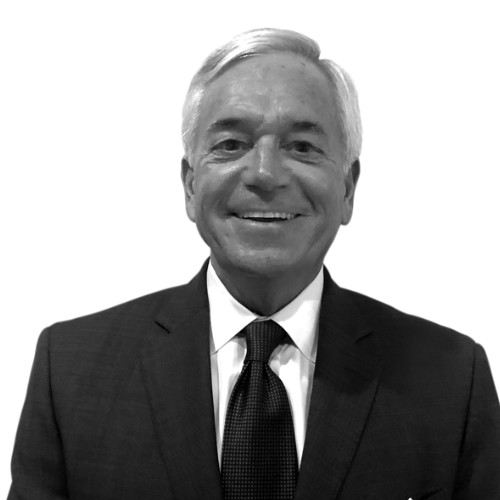
David has more than 35 years of experience leading and managing both domestic and international emerging growth companies. He has achieved consistent and solid results with bio-pharmaceutical, medical device, and clinical software/IT companies. He is also experienced in the FDA approval process, as well as leading products to revenue growth. Kaysen currently serves in board of director roles for privately held healthcare companies InterRad Medical and Spinal Singularity, and as an advisory board member for Ireland-based Atlantic Therapeutics and Minneapolis-based EXB Solutions.
You’ve worked with many interesting companies and technologies in your career. What attracted you to Medibio?
My broader experience has been in medical technology. During what I’ll refer to as my formative professional years, I ran medical device and medical diagnostic companies. Each was a small company and faced challenges like stalled revenues, the need for cost control, and the need to focus the commercialization strategy. Working with companies like this is my specialty and the type of challenge I enjoy. At Medibio, I saw some of those similarities, but mostly I saw a team of great people that are very impassioned about the work we are doing here. That, along with the opportunity to make an impact for people living with mental health conditions, is exciting to me.
Mental health is in the news a lot lately. What can Medibio’s products do to make an impact on this most critical of health issues?
The reality is we all know someone — friends, family, co-workers, maybe ourselves — that has experienced mental health issues. Medibio has real opportunity to impact the health of those individuals. The objective measures we are developing, through the use of digital biomarkers, can help identify risk-predictors for mental health conditions. Everyone can benefit from this: companies looking after the well-being of employees, health providers and individuals.
What are your priorities for the business coming into Medibio?
Strengthening the regulatory pathway is very important. In July of last year, we filed a De Novo submission and recently received the FDA’s initial response. That process is unfolding in the usual way and we’re working now to respond to their questions. Parallel to this, we believe we have the opportunity to pursue one or more 510(k) filings. We’re pursuing those pathways now based on predicate technology.
We’re also working to prioritize the business segments and aligning resources to those priorities. At a small company, raising money seems to be a non-stop process, so raising funds to provide the runway for these priorities is also important. We just accomplished a raise in Australia that will provide us with funds to move to commercialization.
Open and honest communication to all stakeholders — internal and external — is vital as we move through these steps to refine and focus both our regulatory and product strategy.
How are you approaching commercialization of Medibio’s products in the coming year? Are there markets or segments you see as the first to address?
We certainly see 2019 as a year of commercialization. As I mentioned, we’re working on 510(k) filings and commercialization strategy will align with these specific indications for use. At the same time, we continue development of our technology platform that will focus on other indications that have an impact on a variety of mental health issues.
Currently, we are marketing our corporate health product in Australia; globally, there is a need to address employee mental wellness, alongside employees’ physical health. We’ve had a small start with pilot programs there, and we will continue to evaluate and refine that business model.
Medibio is making the transition from a development company to a commercial company. How do you approach building team and culture in this changing environment? Is it more complex having staff in multiple countries?
My approach is to show up with the attitude that we’re all in this together. We need to work hard and have some fun along the way. I see it as my responsibility to energize the company and open and honest communication is the best way to achieve that. I honor an open door (or email, phone) policy. The time difference between our U.S. and Australia offices can provide some challenges, but technology helps bridge that gap, and during a recent trip to Australia I had the opportunity to meet and spend time with team members, investors and business partners. Here in the U.S., we have regular all-hands meetings where I or others provide updates to the full team and we open it up for questions and discussion.
Favorite dish at Spoon & Stable?
I think I am actually better known as “Gavin’s Dad!” Favorites are Bison Tartar at Spoon, Mussels at Bellecour, and TBD at [Gavin’s soon-to-open restaurant] Demi!
What’s your must have item for those long flights to and from Australia?
With lots of time to watch, I always download some good movies.
What do you miss most about Minnesota while you’re on the road for business travel?
We had the first snowfall here in Minnesota while I was in Australia. As much as this sounds strange to some, I really enjoy being home for the first snowfall, and I missed that.
This interview with David Kaysen, has been lightly edited for clarity and length.
Read More in the 6 Questions Series
6 Questions is a new interview series with Medical Alley leaders on the future of healthcare. Medical Alley Association’s membership includes leaders in healthcare delivery, payment, technology, and policy, which gives us – and in turn, you – access to diverse perspectives on how healthcare is changing and what lies ahead.
Medical Alley is the global epicenter of health innovation and care; 6 Questions is meant to share insights and spark discussion. If you have a perspective on the future of healthcare, feel free to share it by reaching out to Frank Jaskulke, Vice President of Intelligence at fjaskulke@medicalalley.org
